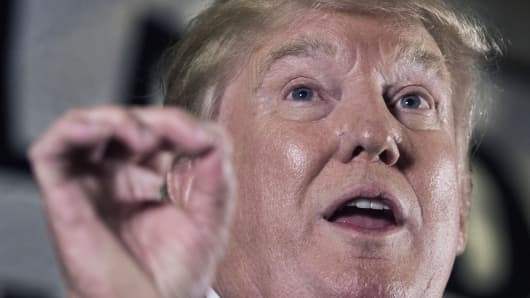In many ways, Donald Trump's political talking points are Orwellian at best. His constant insistence that the U.S. is not "winning" is being repeated with such pneumatic regularity that voters believe it. Or if they don't yet, they may soon.
Whether we are getting killed on trade or being flooded with illegal immigrants, Donald Trump has been making arguments that were, in part, true thirty years ago, but most certainly not today.














